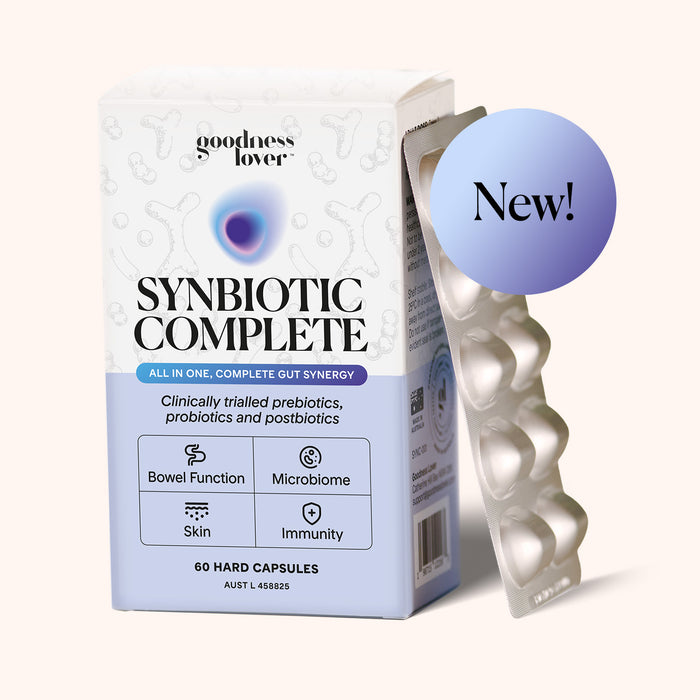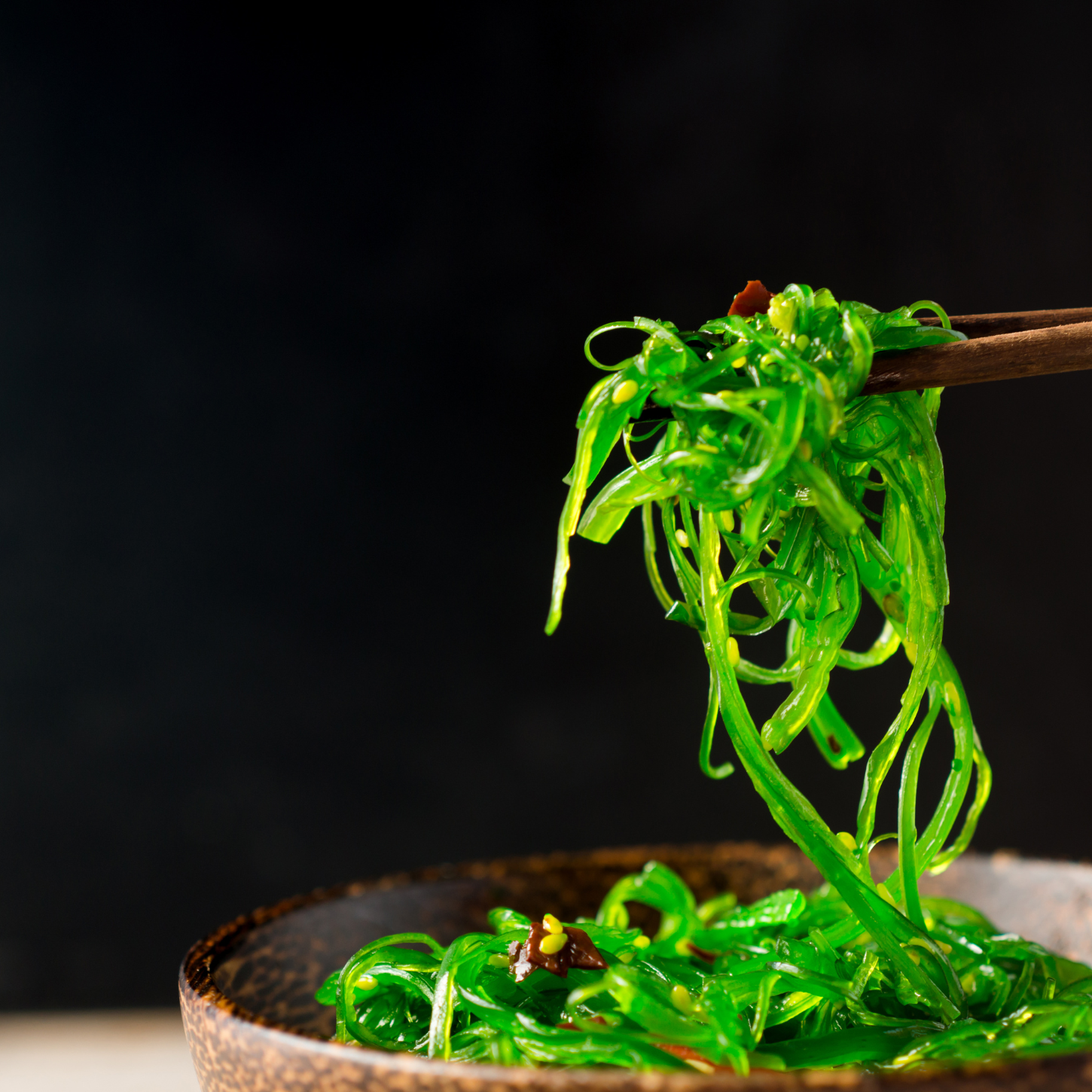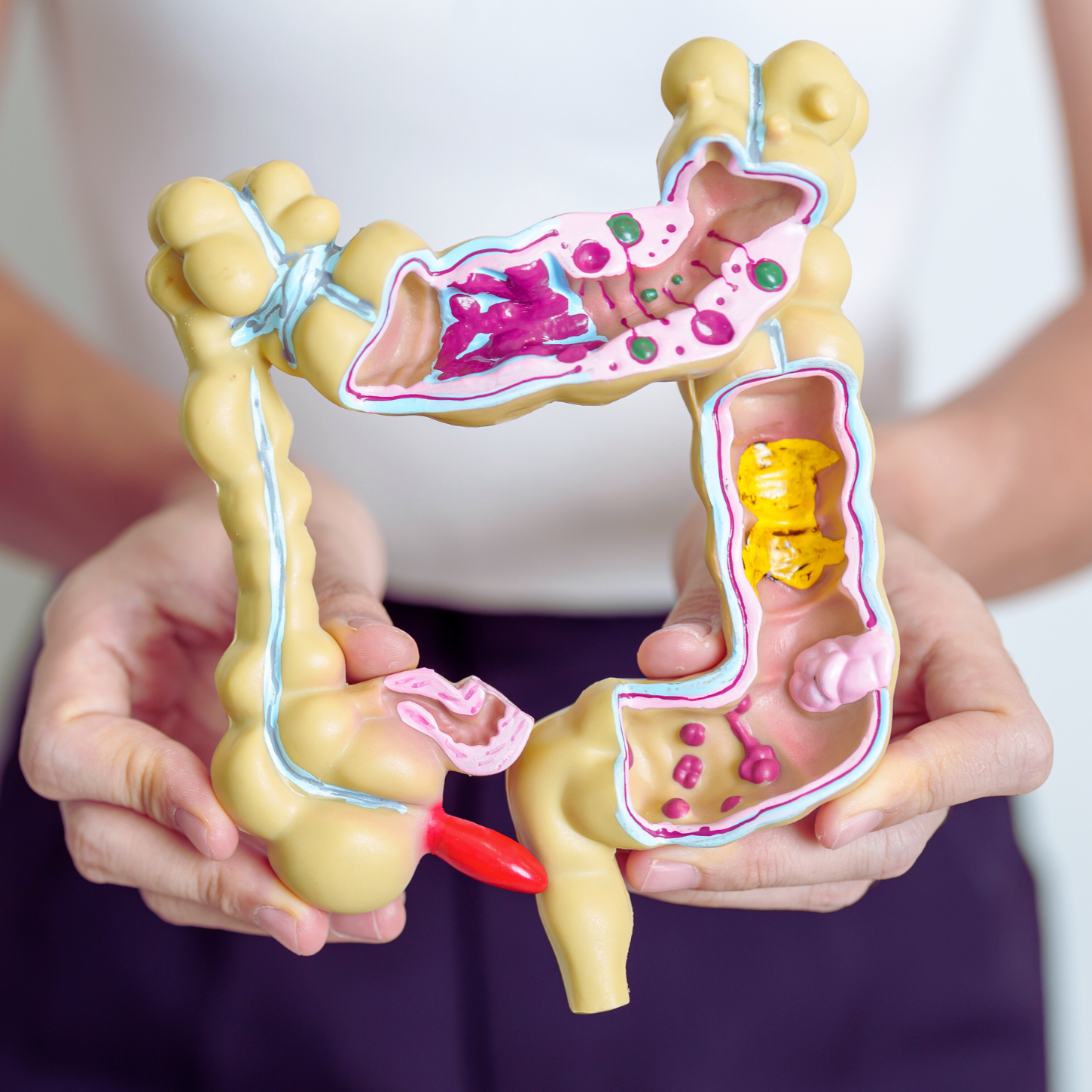Alright, let's cut to the chase.
You've just learned that your diverticular disease isn't some inevitable consequence of aging—it's your colon staging a full-scale rebellion against modern life. You now know about the gut bacteria gone rogue, the inflammatory cascade wreaking havoc on your colon walls, and how everything from stress to processed red meat might be working against you.
But here's where most people get stuck: they have all this knowledge but no clear path forward.
The good news is that, unlike genetic conditions you're powerless to change, the factors driving your diverticular disease are completely within your control. When you address the root causes systematically, you don't just manage symptoms—you create the conditions for real healing.
This isn't about replacing your medical care—it's about giving your body the absolute best conditions to heal itself.
In part 2 of our series on diverticular disease, we're turning knowledge into transformation. We'll be diving deep into the complete anti-inflammatory nutrition protocol that goes far beyond basic fiber recommendations. You'll discover the targeted supplements that actually restore gut balance and strengthen colon wall integrity. We'll explore the lifestyle modifications that can literally rewire your digestive system for optimal function, plus natural strategies for managing acute flares when they occur.
Ready to begin your colon's complete rehabilitation program?
Let's dive in!
Table Of Contents:
The Foundation: Diet
Fiber
Let’s start with the fiber situation. If you're currently getting the standard American intake of 10-15 grams daily, jumping straight to 30+ grams is like going from couch potato to marathon runner overnight—your digestive system will stage a revolt involving gas, bloating, and general digestive chaos.
Here's the smart approach: increase by 5 grams weekly. Week one, aim for 15 grams. Week two, bump it to 20. By week four, you'll hit that therapeutic 30-gram target without the digestive drama.
You also want to be introducing both soluble and insoluble fiber.
Your soluble fiber sources are the most gentle and well-tolerated options. Oats create a gel-like consistency that soothes irritated colon walls while providing bulk. Apples (with the skin!) offer pectin that feeds beneficial bacteria. Beans and lentils are fiber powerhouses that also deliver protein and minerals. And psyllium husk provides comprehensive support for your entire digestive tract.
Insoluble fiber sources (vegetables, especially the cruciferous ones like broccoli and Brussels sprouts, whole grains, and nuts) function as structural support for your colon—they add bulk and help strengthen colon walls. These fibers don't dissolve in water, so they maintain their structure and effectively help move material through your system.
Specific foods that heal
Let's talk about the nutritional champions that actively support colon healing:
Omega-3 rich foods like chia seeds, flaxseeds, and walnuts don't just reduce inflammation—they help your body produce specialized pro-resolving mediators that actively help resolve inflammatory processes. They work to restore balance rather than simply suppressing symptoms.
You may be thinking, “These nuts and seeds are foods my doctor told me to avoid.” Well, this advice—despite still persisting in some medical circles—is a myth that was debunked years ago. These nutrient-dense foods, which were once mistakenly thought to be problematic for their potential to become lodged in diverticular pouches, are now recognized as some of the most beneficial foods for diverticular disease management.
Another group of colon-healing champions are antioxidant-rich polyphenols, which act as powerful cellular protectors for your digestive system. Berries provide anthocyanins that specifically protect colon cells from damage. Leafy greens deliver folate and magnesium that support colon wall integrity. Green tea offers EGCG, a compound that's been shown to reduce colon inflammation.
Gut-healing foods also deserve special mention here. Homemade vegetable broth provides minerals that support healing, while plant-based proteins like hemp seeds and spirulina offer amino acids for tissue repair. Fermented vegetables like sauerkraut and kimchi deliver beneficial bacteria along with fiber. Prebiotic-rich foods like garlic, onions, and Jerusalem artichokes feed the good bacteria that keep your colon environment healthy.

Foods to eliminate or reduce
Now for the not-so-fun part—but stick with me, because understanding why certain foods are problematic makes it easier to let them go.
Inflammatory triggers like processed foods, refined sugars, and trans fats create the perfect storm for colon inflammation. These foods promote the growth of harmful bacteria while starving the beneficial ones, essentially creating the exact conditions that lead to diverticular disease in the first place. Red meat is a big no-no as it creates inflammatory compounds in the colon while providing zero fiber to support healthy function.
Individual sensitivities are trickier to identify but equally important as they promote inflammation in the gut lining. Common culprits include gluten and dairy. The key is paying attention to how your body responds to identify your personal triggers. Elimination diets or food intolerance testing can be helpful here.
Alcohol and smoking should also be avoided as they can significantly increase the risk of diverticulitis.
Targeted Supplementation
The supplement aisle can feel like a confusing maze of promises and pretty bottles. But when it comes to diverticular disease, we're not throwing spaghetti at the wall to see what sticks—we're using targeted, research-backed nutrients that address the specific imbalances driving your condition.
The key with any supplementation protocol is consistency and patience. Remember, your colon didn't develop diverticular disease overnight, and it won't heal overnight either.
Microbiome restoration
Your gut bacteria is likely in chaos right now, but restoration is absolutely possible with the right approach.
Probiotic protocol starts with multi-strain products delivering 25-50 billion CFU daily. But here's where most people go wrong—they grab whatever's cheapest at the pharmacy. You need specific strains that have actually been studied for colon health.
Broad-spectrum probiotics containing combinations of Lactobacilli and Bifidobacterium strains provide comprehensive gut restoration, addressing multiple aspects of digestive dysfunction simultaneously.
Bifidobacterium lactis BB-12 is the most researched strain for alleviating constipation—crucial for preventing the "straining" that can worsen diverticular pouches. Saccharomyces boulardii offers anti-diarrheal properties that can also help manage digestive symptoms during diverticular disease flares.
Lactobacillus reuteri stands out for its ability to stimulate correct bowel motility and has shown significant effectiveness in treating diverticulitis, reducing both symptoms and inflammatory markers in clinical studies.
Prebiotic support is equally crucial because probiotics without food are like trying to plant a garden in concrete. Acacia fiber is incredibly well-tolerated and feeds beneficial bacterial strains throughout your gut. Inulin from Jerusalem artichoke particularly supports Bifidobacterium and Lactobacilli growth, while resistant starch (think cooled potatoes or green bananas) provides fuel for butyrate-producing bacteria—the ones that keep your colon walls healthy and reduce inflammation.
Anti-Inflammatory arsenal
This is where we get serious about calming the inflammatory fire that's been raging in your colon.
Curcumin (from turmeric) is a potent anti-inflammatory that tackles multiple inflammatory pathways simultaneously, making it particularly effective for chronic conditions like diverticular disease. However, curcumin alone is poorly absorbed—look for products with piperine (black pepper extract) or phospholipid complexes, and take with meals containing healthy fats for maximum absorption.
Omega-3 fatty acids provide powerful inflammation reduction. Choose high-quality, plant-based algae oil that's third-party tested, with EPA/DHA ratios favoring EPA (2:1 or 3:1) for optimal anti-inflammatory effects.
Then there’s quercetin, a compound that specifically inhibits the inflammatory pathways active in diverticular disease, and bromelain which enhances absorption and adds its own anti-inflammatory benefits. CoQ10 supports cellular energy production in colon cells, helping them repair and maintain proper function.
These compounds don't just mask inflammation—they address the underlying inflammatory cascade that's damaging your colon walls and preventing healing.
Gut Barrier support
Your colon wall has been under siege, and it needs specific nutrients to rebuild and strengthen.
L-glutamine is the most important nutrient for this task. This amino acid is the preferred fuel source for colon cells and has been shown to reduce inflammation while promoting tissue repair. Dosing typically ranges from 5-10 grams daily.
Digestive enzymes are crucial for reducing the workload on your already-stressed colon. When food isn't properly broken down in your stomach and small intestine, larger particles reach your colon, creating more work and potential irritation.
Your colon needs the building blocks and cofactors to synthesize strong, healthy collagen. Vitamin C is essential for collagen formation, copper supports the enzymes involved in collagen cross-linking, and zinc is required for proper collagen structure.
Gentle fiber supplementation
Even with the best dietary intentions, sometimes you need additional fiber support—but not all fiber supplements are created equal.
Psyllium husk remains the gold standard for diverticular disease because it's incredibly gentle while being highly effective. It forms a gel-like consistency that soothes irritated tissues while providing the bulk your colon needs for proper function. Start with small amounts and increase gradually. It is not recommended during phases of acute flare ups.
Methylcellulose is the synthetic alternative for people who don't tolerate psyllium well. It's non-fermentable, which means it won't cause gas or bloating, making it perfect for sensitive digestive systems.
Herbal Medicine for Colon Health
The beautiful thing about herbal medicine for diverticular disease is that they often work on multiple levels simultaneously—addressing inflammation, supporting beneficial bacteria, and strengthening tissue integrity all at once.
Digestive bitters
Digestive bitters like barberry, gentian, and dandelion stimulate your body's natural digestive secretions. When you taste something bitter, your brain signals your stomach to produce more acid, your pancreas to release enzymes, and your liver to pump out bile. This means food gets properly broken down before reaching your colon, reducing workload and potential irritation.
Take bitters 15-20 minutes before meals, and yes, they taste terrible. That's the point—your taste buds trigger the healing response.
Herbal antimicrobials
Antibiotics aren't always necessary for acute diverticular flare-ups. In fact, research has shown that antibiotic treatment can often be avoided and should be reserved for severe cases.
When harmful bacteria have colonized your colon, natural options can evict them without carpet-bombing your entire microbiome like antibiotics do.
Garlic's allicin targets pathogenic bacteria while being gentle on beneficial strains. Oregano oil's carvacrol and thymol compounds reduce harmful bacterial overgrowth without destroying your microbiome.
Berberine, found in herbs like goldenseal, Oregon grape, and barberry, helps restore proper bacterial balance while providing anti-inflammatory support. Andrographis helps reduce colon inflammation, while myrrh provides antimicrobial support for comprehensive colon healing.

Natural anti-Inflammatories
The most dangerous medications for diverticular disease patients are non-steroidal anti-inflammatory drugs (NSAIDs). These drugs devastate the gastrointestinal tract, significantly increasing inflammation and bleeding risk.
Fortunately, nature provides powerful alternatives that reduce inflammation without the destructive side effects.
Slippery elm creates a protective gel-like coating that soothes irritated colon walls while they heal, making it particularly valuable for diverticular disease. Marshmallow root works similarly, creating a soothing mucilaginous coating that protects inflamed digestive tissues.
Boswellia (frankincense) specifically targets inflammatory pathways involved in digestive conditions without gastric irritation. And chamomile provides gentle anti-inflammatory and antispasmodic effects that help calm colon muscle spasms during flares.
Lifestyle Medicine
Your colon doesn't exist in isolation—it's connected to every other system in your body through an intricate web of nerves, hormones, and biochemical signals. That's why the most effective healing protocols address not just what you eat, but how you move, sleep, and handle stress.
Movement as medicine
Here's something your gastroenterologist probably didn't mention: physical activity is like a gentle massage for your colon, literally helping your digestive system do its job better.
The exercise-digestion connection works through multiple pathways. Movement stimulates the vagus nerve, which controls digestive function, increases blood flow to your colon, and helps maintain the natural rhythm that keeps things moving smoothly.
Even gentle exercise improves colon function. Walking for 20-30 minutes daily can significantly improve colon motility, while swimming provides movement without jarring impact.
Consistency beats intensity every time. A gentle 20-minute walk daily will do more for your colon than sporadic intense workouts that stress your system.
Stress management and sleep optimization
Chronic stress literally rewires your digestive system through the gut-brain axis. Stress alters how your colon moves, cranks up inflammation, and basically makes your gut barrier leaky. Even 10 minutes of deep breathing daily can shift your nervous system from fight-or-flight to rest-and-digest mode.
Sleep optimization isn't negotiable—it's when your colon does most of its repair work. Poor sleep increases inflammatory markers and disrupts the hormones that regulate digestion. Aim for 7-9 hours of quality sleep, with consistent bedtimes and a cool, dark environment.
Hydration
Remember all that fiber we talked about? Without adequate water, it's like trying to use a dry sponge—ineffective and potentially problematic.
Most people should aim for approximately 2L daily, but adjust for activity level, climate, and overall health.
Managing Acute Flares
Let's be real—even with the best prevention protocol, flares can still happen. When your colon is actively inflamed, it's not the time for your usual healing routine.
When inflammation strikes, your colon needs a break from its usual workload. Start with clear liquids only—water, anti-inflammatory herbal teas like chamomile and ginger, and nutrient-dense vegetable broths. Gradually reintroduce well-cooked, low-fiber foods like white rice and bananas, then easily digestible proteins, followed by cooked vegetables without skins. Only return to raw foods once symptoms completely resolve.
Natural pain management includes heat therapy using a heating pad on low-medium over the affected area (never use heat if you have fever). Castor oil packs applied over the lower inflamed colon morning and evening can reduce inflammation and promote healing. Gentle positioning like knee-to-chest stretches and the fetal position often provide comfort.
Supplement modifications during flares should increase L-glutamine for intensive gut lining repair, slippery elm and vitamin C for protective tissue coating, and omega-3s for inflammation control. Keep taking anti-inflammatory supplements like curcumin and omega-3s—you need them more than ever. Maintain probiotics to support beneficial bacteria, though you might want to reduce the dose temporarily if you experience increased gas.
Natural antimicrobials may be beneficial, dosed frequently during acute phases. Temporarily reduce insoluble fiber supplements and anything that increases colon motility when you need rest and healing.
Remember, severe symptoms like high fever, severe pain, or signs of complications require immediate medical attention. These natural approaches support healing but don't replace emergency medical care when needed.
Your Colon's Journey Back to Health
Here's the bottom line: diverticular disease isn't a life sentence—it's your colon's cry for help, and now you know exactly how to answer that call. You've got the complete roadmap from gut microbiome restoration to anti-inflammatory nutrition, from targeted supplements to lifestyle medicine that actually works. This isn't about managing symptoms or accepting limitations—this is about creating the conditions for real, lasting healing.
Your colon developed diverticular disease as a rebellion against modern life, but you can stage a counter-rebellion. Every fiber-rich meal, every targeted probiotic, every stress-reducing walk is a vote for healing over inflammation, restoration over deterioration. The conventional medical approach gave you a list of foods to avoid and told you to "live with it."
But you now have something far more powerful—a science-backed protocol that addresses root causes and gives your body exactly what it needs to heal itself. The journey might take time, but every positive change you make is an investment in your colon’s natural healing capacity.














What Do You Think? Comment Below: